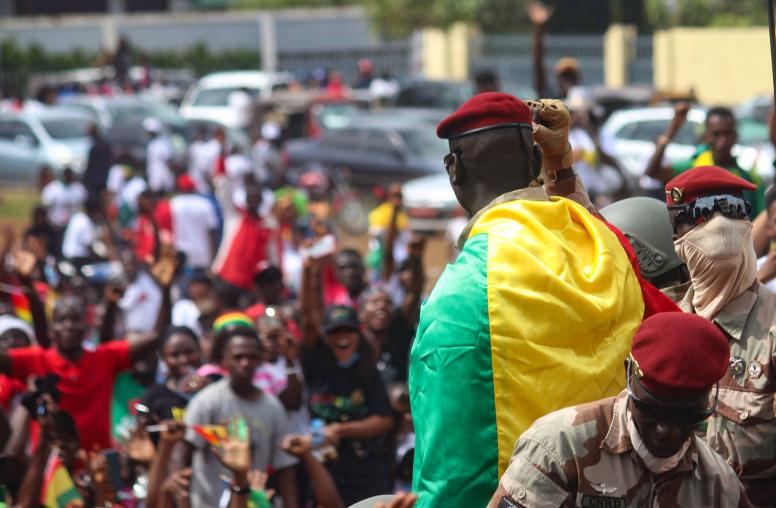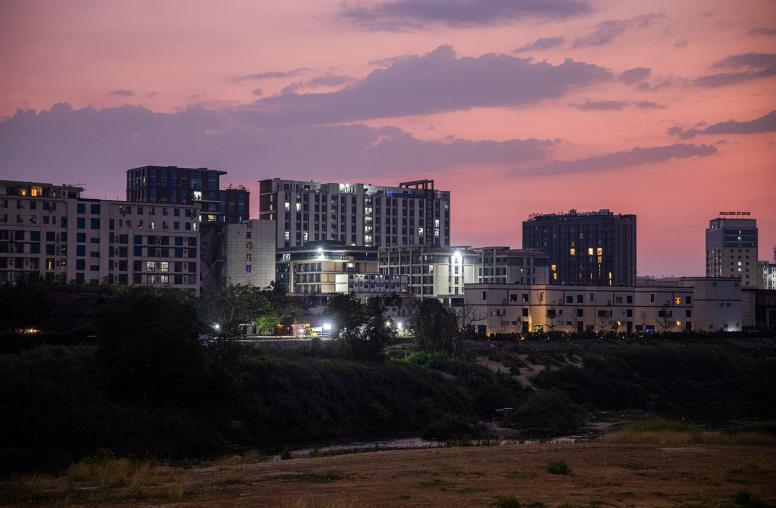The Arab Uprisings 10 Years Later: In Pursuit of Legitimacy
A decade later, governments in the Middle East and North Africa still fall short of the people’s revolutionary expectations.
Ten years ago, a wave of unprecedented unrest ignited the Middle East and North Africa (MENA) region as citizens took a stand against regimes with a long history of authoritarianism and fraying socioeconomic stability. Ever since, there has been an abundance of analysis surrounding the impact of the Arab uprisings on MENA countries. But one critical element of a thorough reflection is missing: Why have the post-2011 governments—transitional and elected—been unsuccessful in fulfilling the expectations of their people?

Surely, there is plenty of evidence to assert that the answers to the abovementioned question would vary, often radically, from country to country, and thus “one-size-fits-all” answers are not helpful. However, the 10th anniversary offers an opportunity to reflect on three main, cross-cutting factors that influenced the outcomes of the 2011 uprisings.
Caught Up on Technicalities
The international community and many local politicians, civil society leaders, and others overemphasized the importance of technicalities in a political transition. The focus remained largely on aspects like elections, capacity-building of legislative bodies, a strengthened civil society, or security sector reform, among other things. In post-Qaddafi Libya, for example, the international community was eager to execute elections, but the social fabric of the country was so weak that such a push actually led to a total division between the east and the west regions of the country in 2014.
Elections and other technicalities are undoubtedly necessary elements of a successful political transition. But in the absence of a new and enshrined social contract between the state and the people, one that confers enough legitimacy to emerging governance structures, these technical measures are laid upon a shaky foundation. While these structures are necessary, a lack of faith renders them virtually useless.
A new social contract would guide the exchanges between, and expectations of, the individual and the state. The individual transfers his or her authority to a representative in exchange for a guarantee that their rights will be protected. Such a relationship requires trust and legitimacy. States in the region are experiencing humiliating deficits in both.
It is not surprising, then, that most of the countries that witnessed the uprisings of 2011 have been devastated by protracted violent conflicts. The rest are undergoing a different type of existential crisis—either political, economic, or social in nature.
Root Causes Still Fueling Grievances
The 2011 uprisings were, ultimately, largely anti-climactic because the root causes of most grievances fueling the unrest went unaddressed. Unfortunately, the endemic issues that plague the region, such as corruption, inequality, human rights violations, and the inability to properly manage and accommodate diverse populations, were left untouched by regime change alone.
So, despite political transitions, these underlying factors created a wide and disappointing gap between people’s expectations for prosperity and its actual attainability. In hindsight, the link between democracy and prosperity was misperceived or overstated. Ten years ago, most of the driving forces behind the uprisings were socio-economic in nature—more so than cries for freedom and political rights—making the post-2011 deterioration of public service provision and economic hardship even more demoralizing.
Hurting their own cases, those in elected or transitional positions today are unable to answer pressing questions about unfulfilled promises. Instead, most resort to empty political rhetoric and cosmetic mitigation measures to buy time.
For example, in Tunisia—which is often deemed as the single, shining star of the 2011 uprisings—unrest often flares in the resource-rich area of Kamour. Residents rightfully demand that the revenue of the resources extracted from the area be reinvested in development projects for the marginalized southern city and protests often become extremely tense and violent. Instead of offering a realistic development plan that considers both the demands of residents and the financial constraints of the country, successive ministers have visited the area delivering lofty, over-promising speeches to appease the population.
In other cases, when confronted with generalized popular dismay, emerging rulers and their international backers have pushed blame onto others. Secularists have accused Islamists and vice versa—and both continue to assign blame to previous regimes or regional and international powers. Year after year in Syria, Bashar al-Assad has recited the same lines blaming the United States and its allies for the length and brutality of the war.
This frustration has slowly given way to mounting nostalgia for the pre-2011 era, and political figures closely associated with the ousted regimes are now suddenly deemed worthy of power. In many cases, some people have gone as far as overtly calling for the previously toppled regime to rise from the ashes. In Libya, there is growing political popularity for Saif al-Islam Qaddafi, son of the deposed Libyan dictator. And to some in Syria, the reality of an Assad regime doesn’t seem as bleak as a never-ending bloody conflict. In Tunisia, political figures like Abir Moussi—the head of the Free Destourian Party who is often accused of trying to resuscitate the pre-2011 political order—are appealing to a surprisingly wide swath of the population.
Underestimating the Hard Work of Democracy
In the wake of the uprisings, many citizens underestimated the personal responsibility and sacrifice required for successful political, social, and economic transformation. The majority of people in the region failed to understand that a better future is not only about toppling a villain or attracting international support—a better future must be pulled out from within as well. In a political transformation, especially one that was hard-fought and bloody, much of the global focus tends to be on political and economic reforms. However, in parallel, there is work to be done on the deeper level of social values to heal toxic pathologies of exclusionary political tactics that lead to cyclical violence.
In Iraq, Syria, Libya, Yemen, Lebanon, and other countries in the region, victims of oppressive regimes—including emerging protest movements or minority groups—have embraced the exact same political and social practices that they complained about, including political violence in some cases. The same citizen who complains of corrupt practices in one place would accept being offered privileges—in kind or in cash—in his or her private practice or, in the case of civil servants, when carrying out their own work. So, the paradigms of inclusion, transparency, compliance, and effective performance works only in one way for a majority of people in the region.
A more peaceful future requires that, on an individual level, citizens commit to the same principles and practices they are preaching and reject the widespread but shortsighted belief in the region that it is acceptable to pursue political, economic, social, and security interests through unorthodox means—including exclusionary and sometimes violent agendas.
Where to Go from Here
The gist of the 2011 uprisings’ essential failure is that although there were some technical political transitions, none were accompanied by reimagined social contracts between states and citizenries, thus leading to a crisis of legitimacy for the emerging governments. This has left the region today experiencing weaker social cohesion, deteriorating living conditions, worsened political instability, and more overall mayhem than before 2011.
And there’s a high risk that these issues could be exacerbated in the near future. A recent Oxfam report states that 45 million more people in the region could be pushed to poverty as a result of the pandemic, and around 1.7 million will lose their job in the next couple of years. As millions will have less access to resources, there is an increased risk of social unrest and significant obstacles to conducting much-needed economic reforms. The prosperity that many in the region continue to seek seems to be getting pushed further out of reach.
In this context of extreme fragility, a response ought to go beyond the traditional financial or technical assistance. For a social contract to confer legitimacy to state authority, it should reflect the general will of a people, serve their collective interests, and ensure their general welfare.
Even though the last decade was disenchanting, the existing chaos does not need to be the region’s destiny. In fact, the second wave of uprisings that swept across the region last year, from Beirut to Baghdad to Algiers, indicates that there is still some level of buy-in to the power of mass mobilization. Prior to December 2010, even the thought of challenging those in power was simply not seen as an option that could generate any positive outcome. The Arab uprisings proved that not to be true. Now, the region faces another herculean, yet possible, challenge: building the foundations for legitimate governance.



